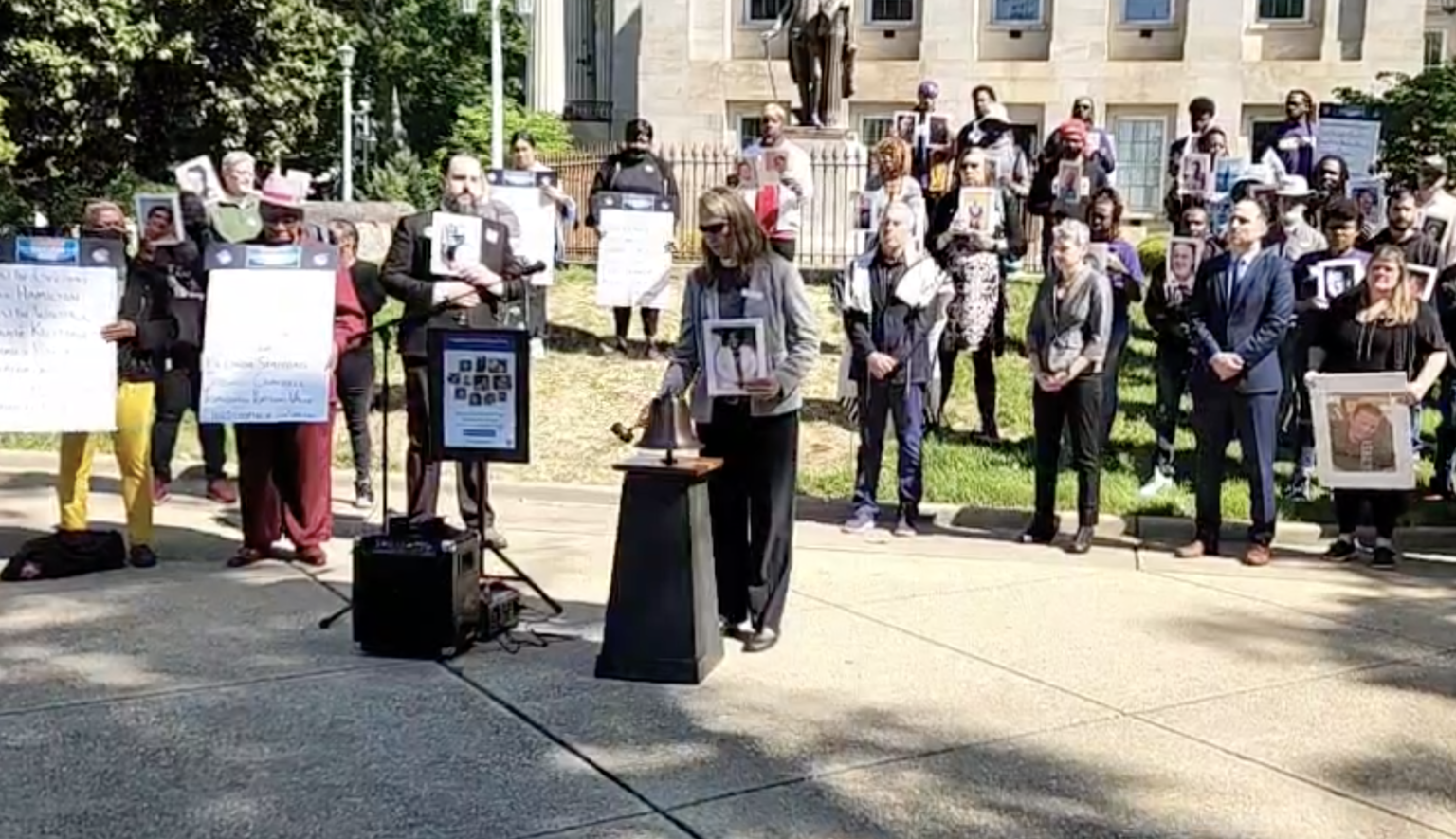The following remarks were delivered by the Executive Director, Jennifer Copeland, during a memorial service and press conference at the North Carolina State Capitol in Raleigh commemorating Workers Memorial Day. Click here to view the entire live stream.
In a sea of regressive policies and depressing news, we have to count our successes. Small though they may seem, they will add up.
- We are here. Standing here, not quite shoulder to shoulder, still responsively socially distant. But we are here and we haven’t been here for the past 2 years.
- And for the first time since I’ve been speaking at these memorials—5 years running—the Secretary of Labor has joined us rather than avoiding us.
There are other small victories related to labor—Amazon workers in New Jersey formed a union—and policy—U.S. congressional districts might be fair this year in North Carolina.
We hold on to the successes so that we can continue to work in the places where people still suffer. Work place fatalities is that place for us today. Deaths are up in North Carolina for the last year for which we have statistics, though they are slightly down nationally. Some good news tainted with bad.
At the North Carolina Council of Churches, we seek to educate people of faith and anyone else who will listen to us about the reality of the policies bracketing their lives and the lives of their neighbors, like their neighbors who die from workplace fatalities. We refract that reality through the lens of faith in order to inspire people to be justice seekers.
One of the most often cited justice verses in our tradition comes from Micah. He says, “do justice, . . . love kindness, . . . walk humbly” (6:8). But one verse doesn’t tell the whole story. The back story is, Micah was responding to unethical business practices in the city: “scant measure, wicked scales, dishonest weights, tongues of deceit” (6:10-12). He listed out workplace immorality, some of which likely led to death for the workers.
The history of this nation is rife with stories of companies that put their profits ahead of their workers, or their finger on the scale, just like those described by Micah. In the remainder of chapter 6, that we never read in public, Micah describes a reign of terror that comes upon the city—sin being its own punishment without any divine judgment necessary.
These verses from Micah show in stark terms what happens to our society when destructive power runs amok, and while we may not have sunk as low as Micah’s critics, we have often allowed those with power to dictate the laws we have in their favor. God knows there is a human tendency to protect our own resources before we look to the protection of others. But God always leaves room for redemption and reminds us of the better course: do justice, love kindness, walk humbly.
With those precepts in mind, we’re here today to call on some collective power for good. By summoning ourselves into this public space we bear witness to a truth that is greater than the evil that drives greed and complicity. By naming aloud those who have died at the hands of collective evil, we redeem their lives for truth and justice. They do not die forgotten. Thanks be to God.

